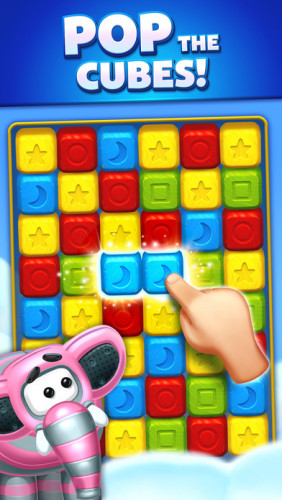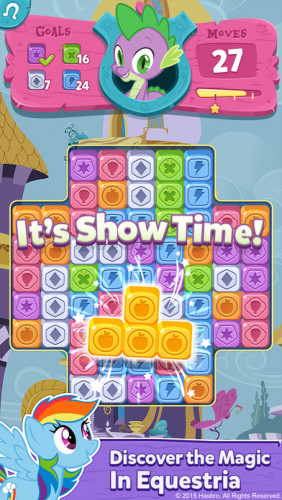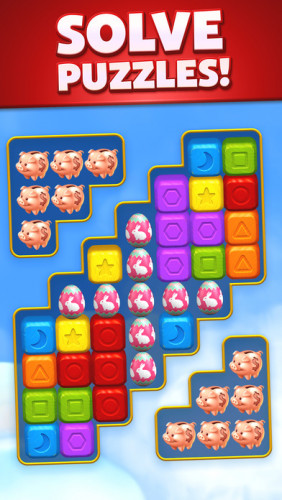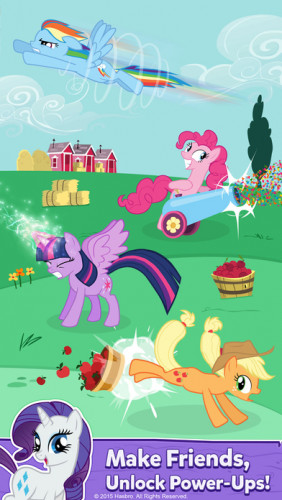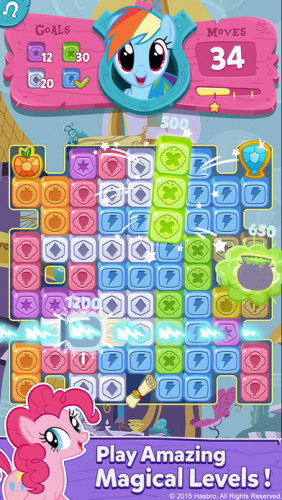The evangelist of the Creative Mobile publishing direction Valentin Merzlikin shared with App2Top.ru his opinion on the fate of the lawsuit in which the authors of Toy Blast accuse Hasbro of cloning their project.
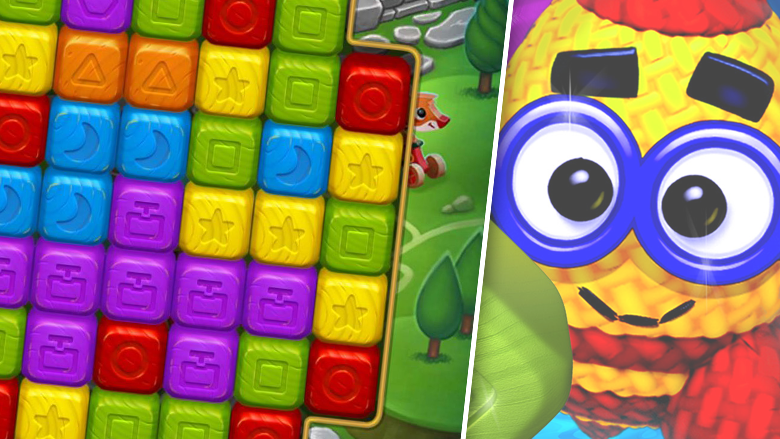
The other day, the world release of the match game My Little Pony: Puzzle Party from Hasbro and its mobile division Backflip Games took place. Almost immediately after the release of the project, the Turkish studio Peak Games sued the company. The essence of the claim: Hasbro and Co verbatim rejected the hit Toy Blast.
We asked Valentin Merzlikin what he thinks about the lawsuit itself and what its resolution may lead to.

Valentin Merzlikin, evangelist of Creative Mobile publishingDoes Peak Games have a chance to win the court?
Look, the last similar case I was seriously interested in was the Spry Fox lawsuit against 6Waves and LOLApps in 2012. It is seriously different from the current one. There it was not limited to cloning, although it took place.
In addition to cloning, in that case it was about the presence of an NDA signed between the companies: 6Waves considered the issue of publishing the game from Spry Fox before it bowed her game. The fact that the companies worked with each other before the release of the project was a serious factor in favor of the plaintiff for the court.
As for the proceedings between Peak Games and Hasbro, it seems to me that there will be a conversation about the fact that game mechanics do not fall under copyright. We know that, one way or another, borrowings occur in many games. The court and lawyers are most likely also aware.
However, on whose side the court will be in the case when the borrowings are so blatant (the same tutorial, similar gems, levels and UI, the same bonuses, and so on) is a big question.
- Toy Blast
- My Little Pony: Puzzle Party
It’s great that Peak Games is focusing on these points in its statement of claim. In this case, I am on the side of a small studio rather than a large company. Although I’ve been through cloning myself – I’ve cloned myself, and we’ve been cloned, so I understand both sides.
In short, I think that Peak Games has chances. The audience of casual players on the mobile platform has significantly expanded in recent years, so that the judges have definitely become more knowledgeable about the subject.
If Peak Games wins, should we wait for a series of similar lawsuits? I understand that the question is hypothetical, but still: if the San Francisco District Court, where the lawsuit is filed, declares that Peak Games is right, will Supercell and other large companies then go to court?
This is a very relevant issue from the point of view of American case law. On the one hand, as I said, I am on the side of a small developer. But I understand that the court’s decision in favor of the plaintiff may affect the entire industry, since case law works both ways. And the next time a developer who wants to clone someone, you can be yourself. And it will end with monstrous financial losses (if companies begin to defend their rights more seriously).
Is it possible to sue Hasbro within the existing elements of developer rights protection, according to which it is impossible to use other people’s assets and brands, and it is impossible for projects to be similar to each other “to the point of confusion”?
- Toy Blast
- My Little Pony: Puzzle Party
Although we are talking about similarity here, games from Peak Games and Hasbro are unlikely to be confused.
Another hypothetical situation. Imagine that Peak Games defended its rights, followed by dozens of other companies. After that, will the industry become a better place, a place where mechanics, not marketing, will rule?
The industry will become a place where lawyers will rule (laughs).
Now, when it comes to people who can represent your legal interests in the gaming industry, the list of companies or names comes to mind is by no means large.
So first of all, all good lawyers will be sorted out and you will only have to look with sadness at the incoming complaints from other law firms and imagine with horror how much it will cost you.
- Toy Blast
- My Little Pony: Puzzle Party
Any claim usually comes out in very, very big money. I would say that the starting ones are $100 thousand, just to re—sign without bringing the case to court.
That is, potentially, the cost of development will soar up?
Yes. Plus, I want to note that there was such a practice on consoles as platform liability insurance against third-party claims. This was done so that the developer, to whom all responsibility was shifted, would have some kind of insurance coverage. I think that in the case of the scenario under discussion, such insurance will become popular. And if I were big companies right now, I would think about insuring my interests if they suspect that they can be contacted.
To summarize, even if Peak Games does not win this case, the company will be fine.
P.S. Valentin also noted in the conversation that the reason for the lawsuit may be the plans of a Turkish company to sell a key stake to a third-party investor.
Also on the topic:

